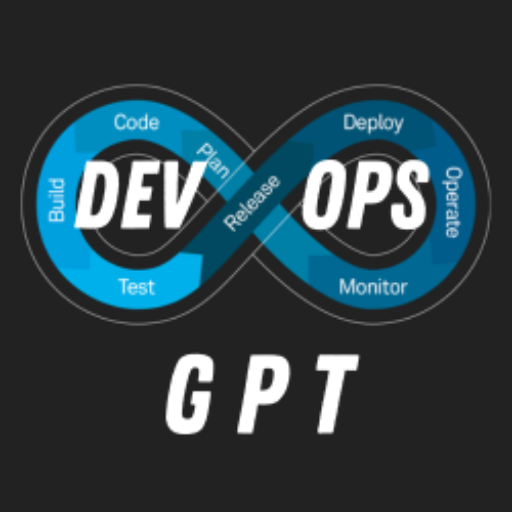AppwriteGPT-backend solutions using AI.
AI-powered solutions for Appwrite backend.
Create an account using email and password in Javascript
Create databases using a Server SDK in Dart
Create an Authentication Component in React
Write Swift script for upload and download files both programmatically using SDKs
Related Tools
Load More
DevOps GPT
DevOps specialist that offers expertise in cloud operations, delivering cost-effective and secure solutions. An expert that excels in solving challenges, providing accurate guidance on Bash, AWS, Terraform, Kubernetes (K8S), Open Source, Helm, Linux Shell

DevOps GPT
AI coding expert for all cloud operation needs. Responds concisely with cost efficient and secure practices.

Create a GPT
Assists in GPT model creation

Product GPT
Convert your idea into a detailed project document: generate features, personas, time-estimates and UI wireframes

App-GPT
Make usable web-apps with prompts and instantly host them

GPT Store
I suggest GPTs based on your needs.
20.0 / 5 (200 votes)
Introduction to AppwriteGPT
AppwriteGPT is designed as a backend assistant specializing in the Appwrite ecosystem. Its primary function is to help developers build scalable and secure applications using Appwrite’s API services across various platforms. AppwriteGPT can assist with database management, file storage, user authentication, real-time communication, and cloud functions. It is intended to streamline the backend process, providing real-time guidance, code examples, and usage best practices to empower developers. For instance, if a developer is working on integrating file storage in a mobile app, AppwriteGPT can provide step-by-step instructions, including SDK setup, file upload code, and permission management.

Core Functions of AppwriteGPT
Database Management
Example
AppwriteGPT guides developers in creating and managing databases using Appwrite's Databases API, including creating collections and managing documents.
Scenario
A developer building a blogging platform can use AppwriteGPT to create a database with collections for blog posts and user comments. The assistant would help configure queries to retrieve, paginate, and sort posts effectively.
File Storage & Manipulation
Example
AppwriteGPT provides detailed instructions for handling file uploads, downloads, and image transformations using Appwrite's Storage API.
Scenario
In an e-commerce application, a developer needs to upload product images and generate thumbnails for different screen sizes. AppwriteGPT can guide the process of file storage setup, including defining buckets, uploading files, and generating image previews.
Function Execution
Example
AppwriteGPT helps developers create serverless functions to extend app functionality or automate processes using Appwrite Functions.
Scenario
A developer wants to build a scheduled email notification system for a CRM application. AppwriteGPT will assist in writing a function that retrieves data from the database and triggers scheduled emails using the appropriate cron expression for Appwrite’s function scheduling.
Ideal Users of AppwriteGPT
Appwrite Developers
These are developers building apps using the Appwrite platform, whether web, mobile, or desktop applications. They benefit from AppwriteGPT's detailed guidance on integrating Appwrite services like authentication, databases, functions, and storage to streamline their development process.
Backend Engineers
Backend engineers who need to set up scalable, secure backend infrastructures for applications would find AppwriteGPT particularly useful. It can accelerate their workflow by providing backend-specific solutions like real-time APIs, user authentication, and cloud functions.

Steps to Use AppwriteGPT
1
Visit aichatonline.org for a free trial without login, no need for ChatGPT Plus.
2
Ensure you have access to the platform. Familiarize yourself with key features such as the available AI models and integrations for Appwrite.
3
Set up an account (if necessary) to save your work and access advanced features. This also allows better tracking of queries and responses.
4
Start by asking specific backend or Appwrite-related questions. The tool specializes in providing accurate, structured answers tailored to backend application development.
5
Leverage the RAG process to retrieve and compile relevant Appwrite documentation or other sources automatically for detailed answers.
Try other advanced and practical GPTs
Realistic Circular LINE Sticker Creator
AI-powered Realistic LINE Sticker Creator

Bro Chat
AI-powered tool to get things done.
Interviewer
AI-powered interviews, dynamic follow-ups.
운세박사 - 사주, 운세, 한국 사주팔자, Asian Fortune Teller 동양 철학
AI-powered Fortune Telling and Insights

AlgoMentor
Your AI-Powered Algorithmic Guide
QGISGPT
AI-powered assistant for all your QGIS needs.
TranslatorGPT 🌐
AI-powered translations at your fingertips

Noter AI
AI-Powered Note-Taking Simplified
Research AI
AI-Powered Insights for Informed Decisions

Solidity Auditor
AI-driven smart contract auditing tool

SEO Master
AI-powered insights for better SEO.

Keyword Strategy
AI-powered keyword insights for better SEO

- Backend Development
- Real-time Apps
- Data Migration
- Mobile Integration
- Appwrite Functions
AppwriteGPT Detailed Q&A
What is AppwriteGPT used for?
AppwriteGPT is designed to assist developers with backend application development using the Appwrite platform. It provides tailored, in-depth guidance on setting up authentication, databases, functions, and other Appwrite services.
How does AppwriteGPT retrieve information?
AppwriteGPT employs a Retrieval-Augmented Generation (RAG) process, which queries Appwrite’s official documentation and other resources to compile accurate and contextually relevant answers to your technical questions.
Can AppwriteGPT help with migrations?
Yes, AppwriteGPT provides detailed steps and guidance for migrating from platforms like Firebase, Supabase, and others to Appwrite, covering users, data, and storage seamlessly.
How does AppwriteGPT handle real-time queries?
AppwriteGPT can offer solutions for real-time functionality in Appwrite, such as setting up Realtime APIs for databases and events, allowing apps to respond instantly to user actions and data changes.
Is AppwriteGPT suitable for mobile app development?
Absolutely. AppwriteGPT supports guidance on mobile app development with Appwrite SDKs like Flutter, offering code snippets and best practices for integrating Appwrite’s backend features into mobile applications.